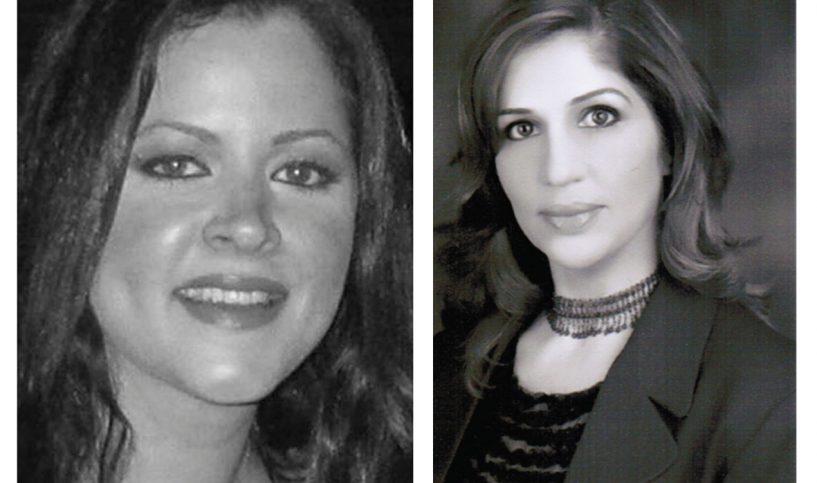Do you have questions for a psychologist? Are you afraid or embarrassed to see one? Well, we may have the answers you need! Now you can ask Dr. Juliet and Dr. Nisrine for psychological and social advice for free!
by Dr. Juliet and Dr. Nisrine
If a baby was born with a birth defect and he can’t hear clearly without a hearing aid, will that lead to him being a slow learner?
If the hearing difficulty is not detected early, the child will undoubtedly experience difficulties with speech as well, as a child needs to hear the sounds of words, and how they are pronounced and articulated, so that he/she can produce them. Furthermore, if the hearing difficulty is not detected prior to the child attending school, he/she will experience learning difficulties given that he/she will be unable to hear and understand all of the information. Undetected hearing difficulties will also have a psychological impact on a child, as the child will feel disconnected, experience low self-esteem given the minimal information they have, and may have a strong negative reaction to school. Since it has been determined that your child was born with a hearing difficulty and requires a hearing aid, it is essential that he/she be using the hearing aid so as not to experience academic and emotional difficulties. It is also advisable that you consult on a routine basis with the physician and ENT specialist/consultant to ensure that you have all the updated information and options for your child.
What is the reason behind the increasing percentage of people with psychological illnesses nowadays?
It is important to remember that 20 years ago, people did not talk about psychological illnesses, and if an illness existed, people hid it from the public in fear of having others label and judge them. Today, we are more educated about psychological disorders and the shame that people once felt about being mentally stressed is significantly decreasing. It is also important to understand that there is a difference between psychological illnesses and psychological symptoms. We all experience psychological symptoms in reaction to our surroundings and the stressors within our lives, however, we don’t all develop a psychological illness. In addition, each individual reacts differently, depending on their gender, biological makeup and life experiences. In our time and age, there is undoubtedly an increase in psychological symptoms in the form of depression, anxiety, and identity struggles, due to the growing global and regional difficulties. We are bombarded with news from around the world given the advances in media technology and social networking. In addition, people now are more stressed with making sense of what is happening around them, coupled with their own individual familial and societal concerns.
How can someone overcome self-destructive habits, as when a person starts hurting themselves psychologically by putting themselves down and punishing themselves for small mistakes? It’s like I have a perfectionist syndrome.
Perfectionist people have a hard time dealing with things that are not seen in their eyes as perfect. They expect a lot of themselves and others. They are also often disappointed with themselves and will self-destruct because they believe they deserve it. Individuals who are very hard on themselves and constantly put themselves down have likely learned such behavior at home where parents put them down, make fun of them, criticize them, and/or emotionally or physically abuse them. These individuals learn to hate themselves because they felt they were hated at home and by the closest people to them. Not all individuals who experience difficulties in their upbringing and within their surroundings will necessarily develop self-destructive patterns. However, everyone is in need of a good support system. Sometimes when we lack support, positive people around us, and we also experience external stressors, we find ourselves helpless and may start blaming ourselves for the problems we are experiencing. It is healthy to sit with ourselves and try to fix mistakes we have made, but it is quite self-destructive to constantly blame ourselves and bring ourselves down. Being perfectionistic and self-destructive is very psychologically damaging and individuals who suffer from this need to seek support and help.
Does the unconscious mind have memories we don’t want to remember, like there’s a reason we can’t remember a specific event or trauma?
Our mind is set up in a way to help us make sense of our world as it organizes information and stores it in different places, eventually assisting us in retrieving it when we need it. However, sometimes when we experience something very traumatic, our mind, in an effort to protect us in the moment, pushes the experience far back into our unconscious storage area. The traumatic event, however, needs to be dealt with and discussed because the trauma eventually will find its way into our conscious awareness and significantly impact our functioning. Some people seem to think that recovering an old and forgotten memory can be achieved through hypnotherapy. It is impossible to recover memory, especially one that involves trauma, through hypnotherapy. You can try to recover your unconscious memory by talking about the trauma and understanding the reasons behind your feelings, but sometimes the brain protects us against fear and resists any memory that may cause us pain that we can’t handle.
How does sleep affect our daily activity?
Sleep is a key factor that affects our daily activities. We need sleep to rest our body and brain so that we are able to function effectively. Difficulties with sleep lead to problems in concentration, attention, energy level, and mood. It also takes a toll on the physical functioning of our body, as it may impact oxygen levels and blood flow.
If you have a friend with a drug addiction but they don’t know or care about it, how can you help them realize that they have a problem?
As a good friend, the best that you can do is talk with your friend about your realizations and express to him/her that you care about them and would like them to get help. You can also provide them with referral sources for the problem and let them know that you are willing to support them during the process of therapy and rehabilitation. You have to understand, however, that many drug addicts will deny their problem and undermine it. Remember, all you can do is be a good friend and you can’t fix the problem or make you friend quit his/her addiction.
For psychological advice, send your questions to dr.jdinkha@kaizen-kw.com. Please note that not all questions can be published. Dr. Juliet and Dr. Nisrine are bilingual and bicultural expert psychologists on various personal and social issues.
Visit www.kaizen-ke.com or follow them on Facebook: kaizen2q8.











